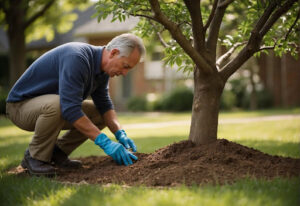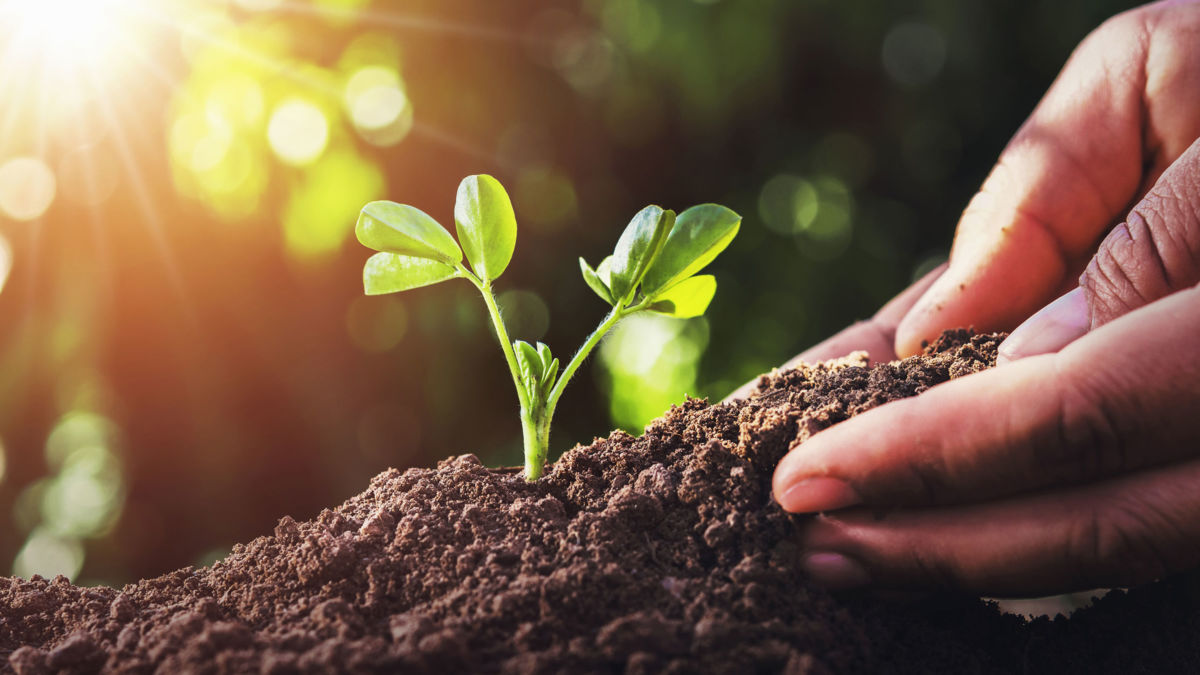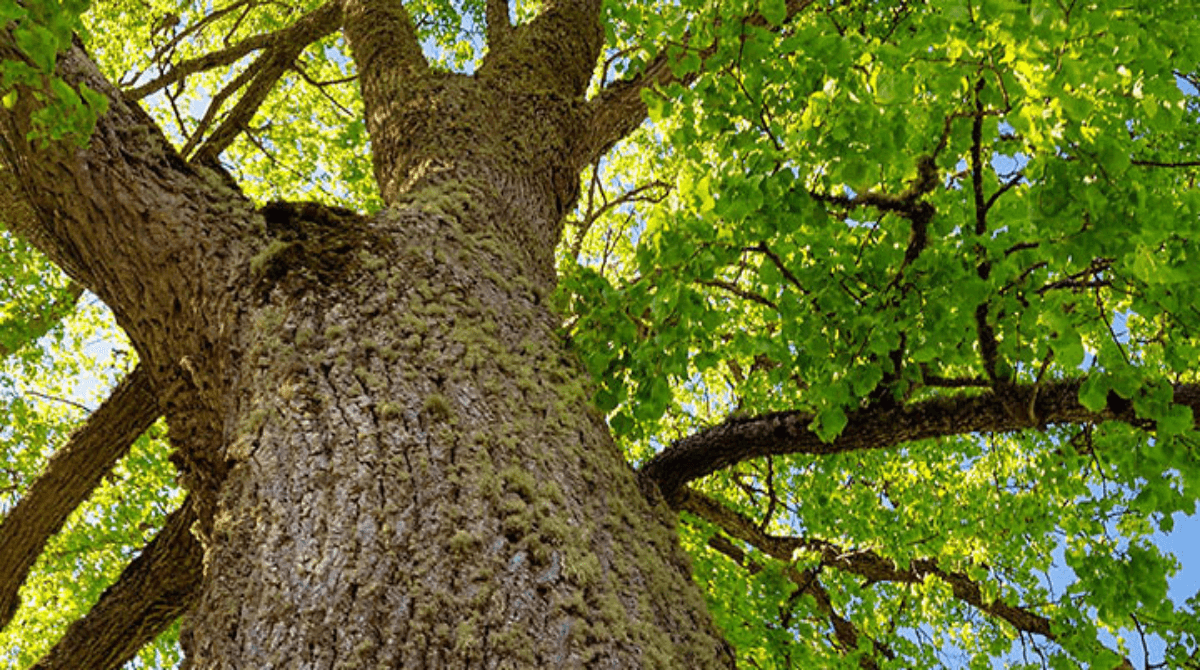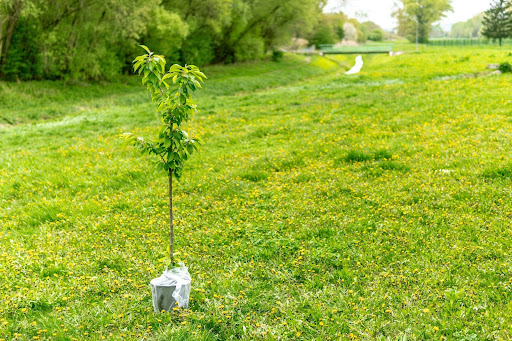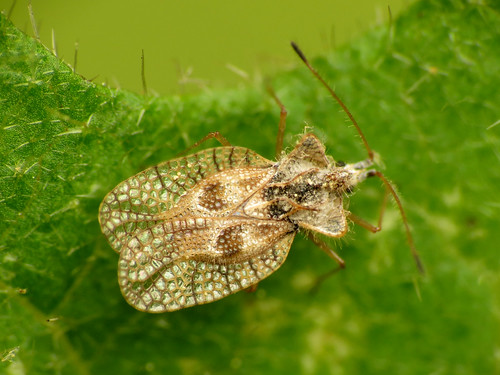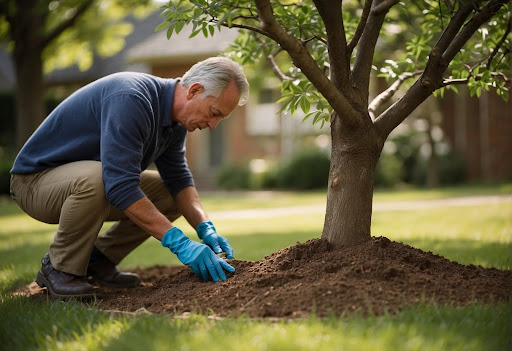
Best Practices for Optimal Tree Health Through Tree Fertilization in Arlington
Date April 03, 2024
Trees are pivotal to the landscape and environment in Arlington, providing aesthetic beauty, shade, and numerous ecological benefits. To maintain the vigor and health of these essential green assets, proper fertilization practices are a must. Fertilization is the process of adding nutrients to the soil that trees may be lacking, which can lead to improved tree growth, increased resistance to disease, and a more robust root system. Arlington’s urban forest is as diverse as it is expansive, thus understanding the specific needs of local trees is the foundation for any effective fertilization program. Elevate the well-being of your trees and property with TreeNewal.
The soil in Arlington can vary, impacting how nutrients are held and released to trees. Before beginning any fertilization process, it’s crucial to conduct a soil test. This test reveals the current nutrient status of the soil and provides insights into what type of fertilizer is needed, if any. Over-fertilization can be just as harmful as under-fertilization, leading to poor tree health and environmental damage. Proper timing and application methods are also essential to ensure that trees can absorb the nutrients provided efficiently.
Best practices for tree fertilization hinge on a tailored approach that considers the tree species, age, health, and the specific soil conditions of the Arlington area. Slow-release fertilizers often yield the best results, as they provide a steady supply of nutrients over time, reducing the risk of nutrient runoff and environmental contamination. Additionally, adhering to local regulations and guidelines in Arlington helps not only in maintaining individual tree health but also in supporting the vitality of the community’s urban forest as a whole.
Understanding Tree Fertilization
Proper tree fertilization is critical for maintaining tree health and promoting vigorous growth in Arlington. Trees require nutrients to function and grow, which they naturally obtain from the soil. However, urban soil conditions often lack the necessary nutrients for optimal tree development.
Essential Nutrients required by trees include:
- Nitrogen (N): Vital for foliage growth.
- Phosphorus (P): Supports root and flower development.
- Potassium (K): Enhances overall tree health.
Urban soils can be deficient in these nutrients, necessitating a fertilization regimen.
Best Practices for tree fertilization consist of:
- Soil Testing: Determine nutrient deficiencies and soil pH.
- Right Timing: Fertilize in late fall or early spring during the tree’s dormant phase.
- Correct Application: Ensure even distribution, avoiding direct contact with the trunk.
Methods of Application can include:
- Granular: Spread evenly across the soil surface.
- Liquid: Injected directly into the soil or applied as a foliar spray.
- Stakes: Driven into the ground near the tree’s drip line.
Tree species, age, and local soil conditions dictate the frequency and amount of fertilization. Over-fertilization can be harmful, leading to excessive growth, leaf burn, or even death.
It is imperative to tailor the fertilization approach to the tree’s specific needs to foster a thriving urban canopy.
Best Practices for Tree Fertilization in Arlington
Proper tree fertilization is imperative for maintaining tree health and growth in Arlington. The following best practices will help residents achieve a landscape that thrives throughout the seasons.
Soil Assessment and Testing
Soil Testing: The first step in effective tree fertilization is conducting a soil test. Soil analysis provides critical information on pH levels, nutrient content, and soil type, which can greatly influence fertilizer selection and application strategy. Arlington residents should have their soil tested by a local extension service or a qualified laboratory to gather accurate data.
Selecting the Right Fertilizer
Fertilizer Options: Once soil properties are understood, it is crucial to choose a fertilizer that complements the specific needs of the tree species and local soil conditions. Utilize a slow-release formula with a balanced mix of nitrogen, phosphorus, and potassium, ensuring it caters to the significant growth phases of trees in Arlington.
Timing and Frequency of Fertilization
Fertilization Schedule:
Spring: Apply fertilizer early in the season when tree growth commences.
Fall: A lighter application can benefit trees as they prepare for winter.
Regular fertilization should be based on the soil test results, tree species, and the varying climate patterns of Arlington. Avoid over-fertilization, which can lead to poor tree health and environmental harm.
Environmental Considerations
In Arlington, the success of tree fertilization is closely tied to environmental factors such as local weather patterns and soil conditions. Appropriate considerations of these elements can enhance tree growth and health.
Weather and Climate Factors
Arlington’s climate, characterized by hot summers and mild to cool winters, plays a crucial role in determining the appropriate fertilization schedule. Trees should be fertilized:
- Spring (March to June): Start with a slow-release fertilizer to support growth as temperatures warm.
- Fall (September to November): Apply a balanced fertilizer to help trees store nutrients before winter dormancy.
Avoid fertilizing during the peak of summer heat or when the ground is frozen, as this can cause stress or limit nutrient uptake.
Local Soil Conditions
Soil analysis is imperative for effective tree fertilization in Arlington. Key soil attributes include:
pH Level: Ideal soil pH for most trees is between 6.0 and 7.0. Apply sulfur to lower pH if it’s too high, or lime to raise pH if it’s too low.
Nutrient Content: A soil test identifies deficiencies. For instance, nitrogen is often low in urban soils, necessitating its inclusion in fertilizers.
Soil composition affects drainage and aeration, which are critical for root health. Amending clay-heavy soils with organic matter can improve these properties.
Monitoring and Maintaining Tree Health
Maintaining the health of trees in Arlington begins with consistent monitoring and the implementation of long-term care strategies.
Regular Inspection
Trees should be inspected regularly to detect signs of nutritional deficiencies, pests, and diseases. A healthy tree typically has vibrant foliage, robust growth, and no visible signs of stress. Inspection intervals may vary, but it is advisable to inspect trees as the seasons change. A checklist for inspection could include:
- Leaves: Checking for discoloration or unusual leaf drop.
- Branches: Looking for dead or broken branches.
- Trunk: Examining for cracks, decay, or any visible changes.
- Roots: Observing for signs of upheaval or rot.
Long-Term Care Strategies
Implementing a schedule for fertilization contributes significantly to a tree’s longevity and vitality. In Arlington, trees have specific nutritional requirements depending on their species and the local soil conditions. Long-term care includes soil testing, which informs the precise formulation and timing of fertilizer application. Essentials for a fertilization plan might involve:
- Soil Testing: Conducting biennial soil tests to tailor fertilization needs.
- Mulching: Applying organic mulch around the tree base to maintain soil moisture and improve nutrient composition.
- Watering: Ensuring adequate hydration, especially during drought periods.
- Seasonal Fertilization: Supplying the right nutrients at optimal times of the year.
In Arlington, the health and vigor of urban trees are essential for providing shade, beauty, and ecological benefits. Proper tree fertilization is crucial in ensuring these green assets receive the nutrients they need for growth, disease resistance, and overall health. Recognizing the unique needs of Arlington’s diverse tree population and understanding local soil conditions are key to any effective fertilization program.
TreeNewal, with its deep expertise since 2017 in the Dallas and Fort Worth Metroplex, excels in delivering tailored Tree Fertilization in Arlington services. Their team of certified arborists is adept at conducting soil analyses, choosing the right fertilizers, and determining the best application times, ensuring your trees not only survive but flourish.
Opting for professional tree fertilization means contributing to the sustainability and resilience of Arlington’s urban canopy. Engage TreeNewal for your tree care needs and embrace a healthier, greener Arlington. Contact TreeNewal today to take a significant step towards nurturing your landscape.
